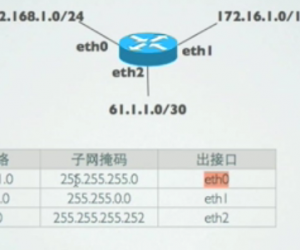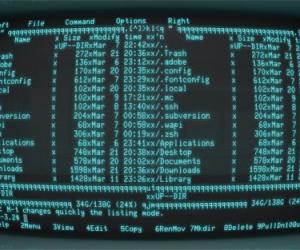centos编译start-stop-daemon,支持最新的option(--chdir)
发布时间:2014-09-05 13:39:51作者:知识屋
centos编译start-stop-daemon,支持最新的option(--chdir)
start-stop-daemon 是 debian的工具。
在centos/redhat发布版本中没有此库。为了兼容一些脚本调用此程序,我们需要手工编译此工具。
遗憾的是,你编译运行之后,发现此版本不支持 --chdir的option,
start-stop-daemon --help
start-stop-daemon 1.9.18 for Debian - small and fast C version written by
Marek Michalkiewicz <marekm@i17linuxb.ists.pwr.wroc.pl>, public domain.
Usage:
start-stop-daemon -S|--start options ... -- arguments ...
start-stop-daemon -K|--stop options ...
start-stop-daemon -H|--help
start-stop-daemon -V|--version
Options (at least one of --exec|--pidfile|--user is required):
-x|--exec <executable> program to start/check if it is running
-p|--pidfile <pid-file> pid file to check
-c|--chuid <name|uid[:group|gid]>
change to this user/group before starting process
-u|--user <username>|<uid> stop processes owned by this user
-n|--name <process-name> stop processes with this name
-s|--signal <signal> signal to send (default TERM)
-a|--startas <pathname> program to start (default is <executable>)
-N|--nicelevel <incr> add incr to the process's nice level
-b|--background force the process to detach
-m|--make-pidfile create the pidfile before starting
-R|--retry <schedule> check whether processes die, and retry
-t|--test test mode, don't do anything
-o|--oknodo exit status 0 (not 1) if nothing done
-q|--quiet be more quiet
-v|--verbose be more verbose
Retry <schedule> is <item>|/<item>/... where <item> is one of
-<signal-num>|[-]<signal-name> send that signal
<timeout> wait that many seconds
forever repeat remainder forever
or <schedule> may be just <timeout>, meaning <signal>/<timeout>/KILL/<timeout>
Exit status: 0 = done 1 = nothing done (=> 0 if --oknodo)
3 = trouble 2 = with --retry, processes wouldn't die
上面没有我需要的--chdir的选项。
继续google搜索(ps: 一般这种英文库的搜索使用google, baidu基本搜索不出有用的东东)
下面就是我的安装过程
wget http://ftp.de.debian.org/debian/pool/main/d/dpkg/dpkg_1.17.1.tar.xz
tar -xf dpkg_1.17.1.tar.xz
cd dpkg-1.17.1
./configure >/dev/null
make >/dev/null
cd utils
make
sudo cp start-stop-daemon /usr/local/bin/start-stop-daemon
提示: make >/dev/null 会报错的,不管它。因为我们只需要后面的 cd utils中的start-stop-daemon
现在运行 start-stop-daemon --help, 结果如下,可以找到我想要的--chdir的选项了。
Usage: start-stop-daemon [<option> ...] <command>
Commands:
-S|--start -- <argument> ... start a program and pass <arguments> to it
-K|--stop stop a program
-T|--status get the program status
-H|--help print help information
-V|--version print version
Matching options (at least one is required):
-p|--pidfile <pid-file> pid file to check
-x|--exec <executable> program to start/check if it is running
-n|--name <process-name> process name to check
-u|--user <username|uid> process owner to check
Options:
-g|--group <group|gid> run process as this group
-c|--chuid <name|uid[:group|gid]>
change to this user/group before starting
process
-s|--signal <signal> signal to send (default TERM)
-a|--startas <pathname> program to start (default is <executable>)
-r|--chroot <directory> chroot to <directory> before starting
-d|--chdir <directory> change to <directory> (default is /)
-N|--nicelevel <incr> add incr to the process' nice level
-P|--procsched <policy[:prio]>
use <policy> with <prio> for the kernel
process scheduler (default prio is 0)
-I|--iosched <class[:prio]> use <class> with <prio> to set the IO
scheduler (default prio is 4)
-k|--umask <mask> change the umask to <mask> before starting
-b|--background force the process to detach
-C|--no-close do not close any file descriptor
-m|--make-pidfile create the pidfile before starting
-R|--retry <schedule> check whether processes die, and retry
-t|--test test mode, don't do anything
-o|--oknodo exit status 0 (not 1) if nothing done
-q|--quiet be more quiet
-v|--verbose be more verbose
Retry <schedule> is <item>|/<item>/... where <item> is one of
-<signal-num>|[-]<signal-name> send that signal
<timeout> wait that many seconds
forever repeat remainder forever
or <schedule> may be just <timeout>, meaning <signal>/<timeout>/KILL/<timeout>
The process scheduler <policy> can be one of:
other, fifo or rr
The IO scheduler <class> can be one of:
real-time, best-effort or idle
Exit status:
0 = done
1 = nothing done (=> 0 if --oknodo)
2 = with --retry, processes would not die
3 = trouble
Exit status with --status:
0 = program is running
1 = program is not running and the pid file exists
3 = program is not running
4 = unable to determine status
(免责声明:文章内容如涉及作品内容、版权和其它问题,请及时与我们联系,我们将在第一时间删除内容,文章内容仅供参考)
相关知识
-

linux一键安装web环境全攻略 在linux系统中怎么一键安装web环境方法
-

Linux网络基本网络配置方法介绍 如何配置Linux系统的网络方法
-
Linux下DNS服务器搭建详解 Linux下搭建DNS服务器和配置文件
-
对Linux进行详细的性能监控的方法 Linux 系统性能监控命令详解
-
linux系统root密码忘了怎么办 linux忘记root密码后找回密码的方法
-
Linux基本命令有哪些 Linux系统常用操作命令有哪些
-
Linux必学的网络操作命令 linux网络操作相关命令汇总
-

linux系统从入侵到提权的详细过程 linux入侵提权服务器方法技巧
-

linux系统怎么用命令切换用户登录 Linux切换用户的命令是什么
-
在linux中添加普通新用户登录 如何在Linux中添加一个新的用户
软件推荐
更多 >-
1
 专为国人订制!Linux Deepin新版发布
专为国人订制!Linux Deepin新版发布2012-07-10
-
2
CentOS 6.3安装(详细图解教程)
-
3
Linux怎么查看网卡驱动?Linux下查看网卡的驱动程序
-
4
centos修改主机名命令
-
5
Ubuntu或UbuntuKyKin14.04Unity桌面风格与Gnome桌面风格的切换
-
6
FEDORA 17中设置TIGERVNC远程访问
-
7
StartOS 5.0相关介绍,新型的Linux系统!
-
8
解决vSphere Client登录linux版vCenter失败
-
9
LINUX最新提权 Exploits Linux Kernel <= 2.6.37
-
10
nginx在网站中的7层转发功能
























